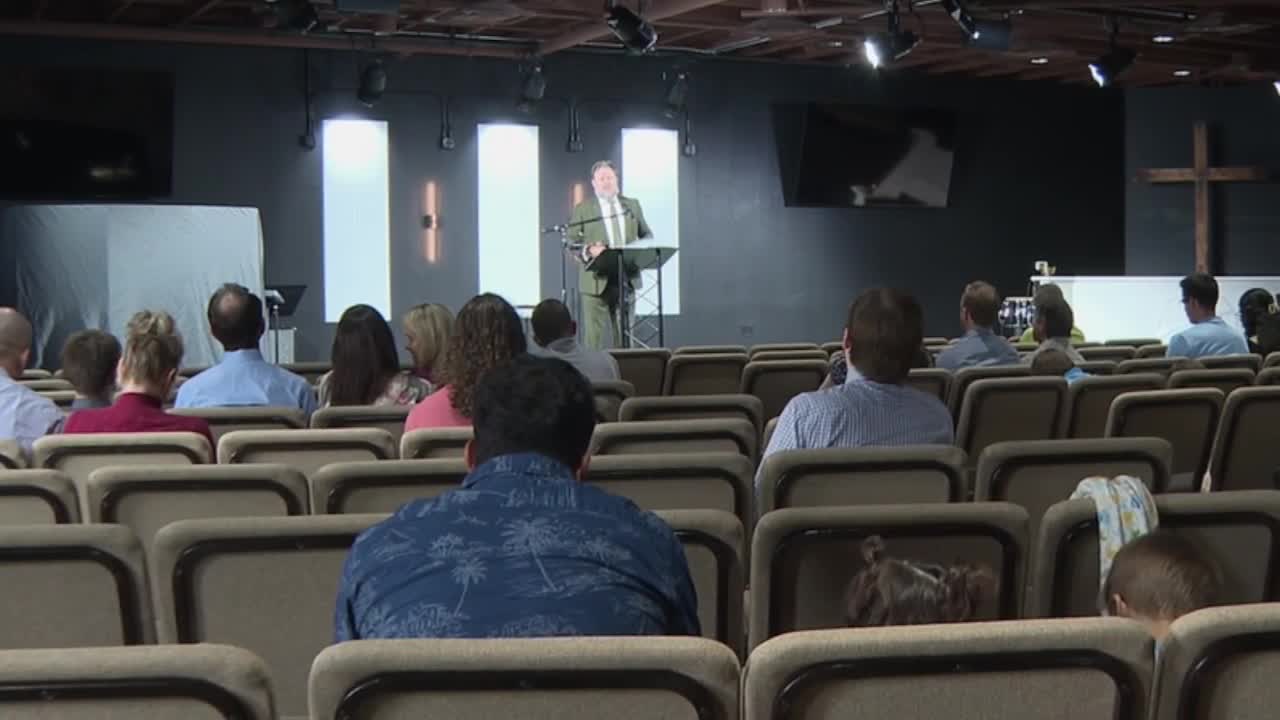PHOENIX — For the first time in American history, young men are outnumbering young women in church service attendance.
This is a change from what we have seen for the last three decades, where more Americans disaffiliated with religious traditions.
Singing the Psalms on Sunday is not something Gen Z is typically known for, but for certain young churchgoers, it is an ancient tradition they do not need Wi-Fi to access.
“I think Gen Z is looking for meaning. And I’ve seen this in myself and even younger people today,” said Chase Harper, who is part of Gen Z.
New data from Barna Group, which studies numbers and trends within Christianity, suggests young adults are leading a resurgence in church attendance.
As part of their State of the Church initiative, Barna found that millennials and Gen Z Christians are going to church more often than before, even more so than older generations.
According to their report: “The typical Gen Z churchgoer now attends 1.9 weekends per month, while Millennial churchgoers average 1.8 times.” The report added that this is “a steady upward shift since the lows seen during the pandemic.”
Religious studies experts ABC15 spoke with say some data shows Gen Z men in particular are coming back to the pews.

Do you have a concern in your community or a news tip? We want to hear from you!
Connect with us: share@abc15.com
“As a philosophy professor, what I see is students wanting some connection with the transcendent,” said Dr. Owen Anderson, the pastor of Christ The King Reformed Church and a professor of philosophy and religious studies at Arizona State University.
“Gen Z right now is.. they find meaning in TikTok, YouTube, social media, money, etc. Those things don’t last, while Christianity does,” said Daniel Anderson, who is also part Gen Z.
“It’s community, it’s meaning, it’s what does it mean to be a good man,” said Joseph Silva, a millennial who says he came back to the church later in his life.
Harper says he was never religious before, but church helped him find answers to life’s questions.
“Going to church, going to college clubs that helped answer questions, reading the Bible myself, praying, studying apologetics, I came to faith,” he said.
Meanwhile, Gen Z women have a higher church dropout rate than any other group.
According to the Survey Center on American Life, nearly two-thirds of Gen Z women they polled said they do not think churches treat men and women equally. Abortion and LGBTQ issues also play a role in how young women view religion.
Some estimates suggest between 4,000 to 10,000 churches nationwide permanently closed their doors last year. The impacts here in the Valley could be stark.
“So outside of the government, most of the social action work that takes place in Arizona is done by people of faith through religious organizations,” said Ed Stetzer, the dean of Talbot School of Theology in Southern California.
According to Pew Research Center, 58 percent of adults in Arizona identify as Christian. 28 percent of those fall into Protestant denominations like Presbyterians and Baptists, another 21 percent are Roman Catholic and about five percent are Latter-Day Saint, or Mormon.
Separately, 10 percent of Arizona adults identify with another religion such as Islam or Hinduism. Another 31 percent do not subscribe to any religion in particular.






